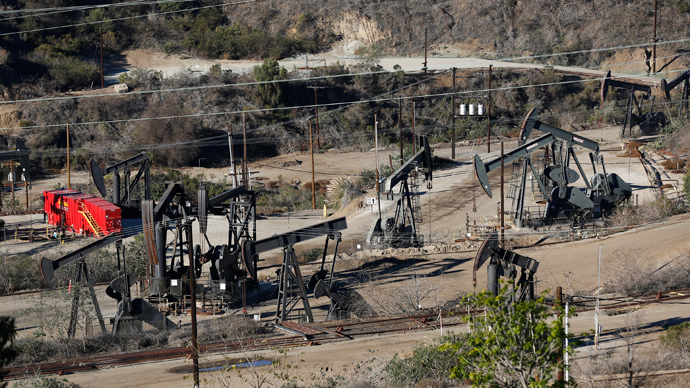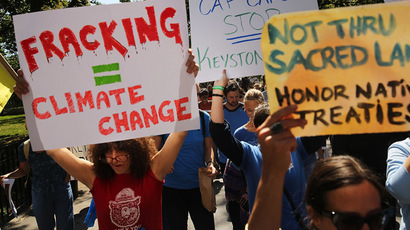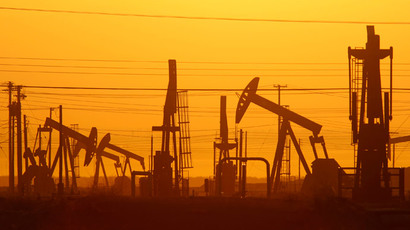Canada kicks up a fracking fuss as govt body slams poor research

A new report by Environment Canada, a governmental body, admits there is too little scientific information on the effects of hydraulic fracturing on the environment and human health.
The report by 14 international experts was compiled at the request of Environment Canada to consider the pollution impacts of the exploration and extraction of Canada’s shale gas resources.
Unlike the United States, which has seen an explosion of shale gas development, fracking in Canada has moved at a much slower pace.The authors note that this gives the country an opportunity to develop shale gas resources responsibly.
The shale gas boom in Pennsylvania in the US has been administered at break neck speed and this means that any hazards associated with it are not properly understood.
“We’re racing ahead without seriously thinking through how best to do this,” said Dr. Goldstein, one of the authors of the report and professor of Environmental and Public Health at the University of Pittsburgh.
The report warns that: “data about potential environmental impacts are neither sufficient nor conclusive.”
While Rick Chalaturnyk, one of the report’s authors, said in an interview with CBS news that “additional information needs to be collected to better understand and manage those impacts.”
The study found that there were potentially serious impacts on surface water, groundwater, greenhouse gas emissions, cumulative land disturbance and human health.
“Most experts agree that impacts on water raise the greatest environmental concern by shale gas development,” says the report’s executive summary as quoted by iPolitics.
The process of hydraulic fracturing involves pumping chemicals and sand into rock deep underground, which then releases natural gas, held inside the bedrock. Both the gas and the chemicals used to extract it can leak into drinking water, and this is not being properly monitored, the report says.
“For large-scale shale gas development now, I don’t think you want to be in a position anymore of just saying ‘trust me, we know what we’re doing.’ We’re past that,” said Chalaturnyk.
The study says Canadians are suspicious they are not being told the full story about the dangers of fracking and that more research is needed to reassure people.
But even the scientists are in disagreement as there are many questions about the impacts of fracking that are hard to answer.
“Unfortunately the science is at such an immature stage you’ve got widely different views,” said John Cherry of Guelph University.
The authors also note that because of the different environments, ecosystems, geographies and geologies in Canada, regional impacts need to be considered when determining if an area is suitable for shale gas extraction.
In western Canada, where shale gas extraction has been developed under existing regulations for conventional oil and gas drilling, further changes may be needed. For example, the cement casings that surround wells to keep natural gas isolated from the environment are subject to much higher pressures and more wear and tear in hydraulic fracturing than in conventional drilling.














